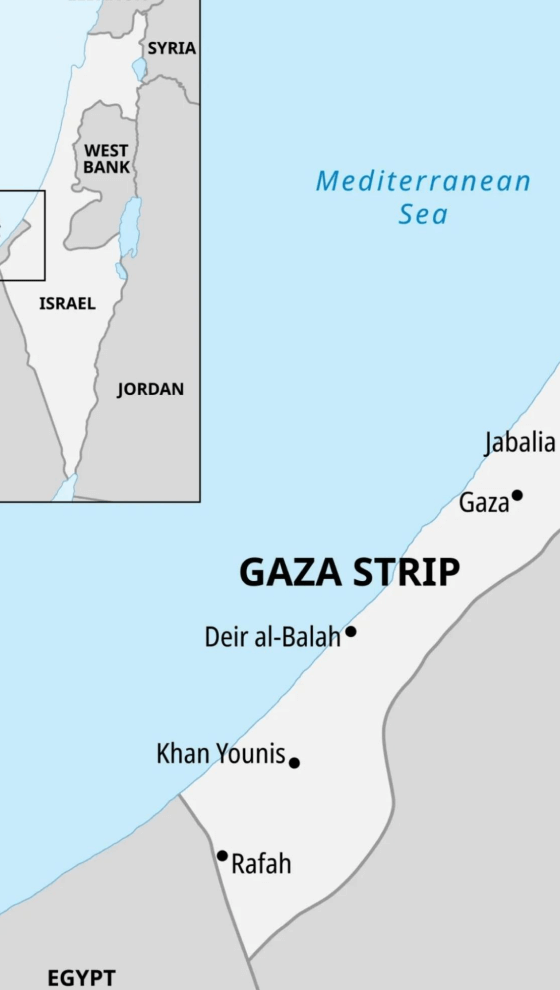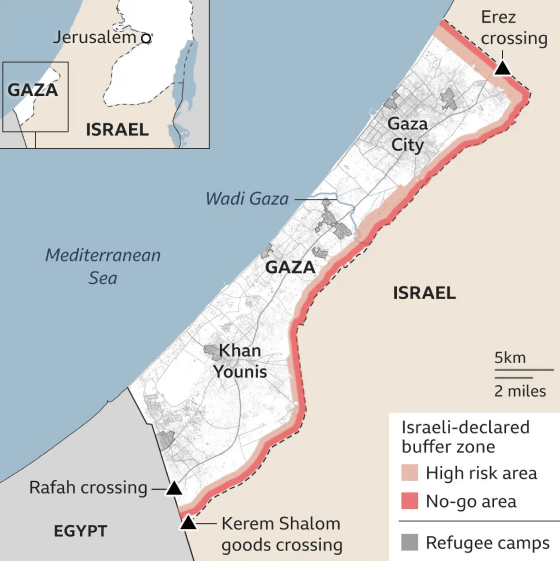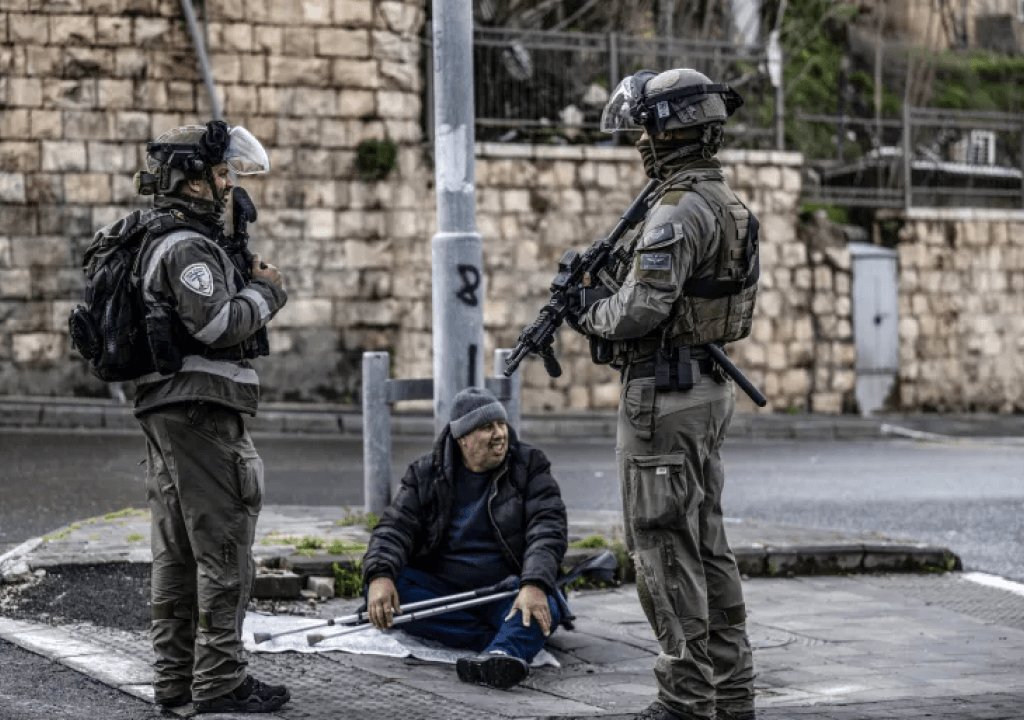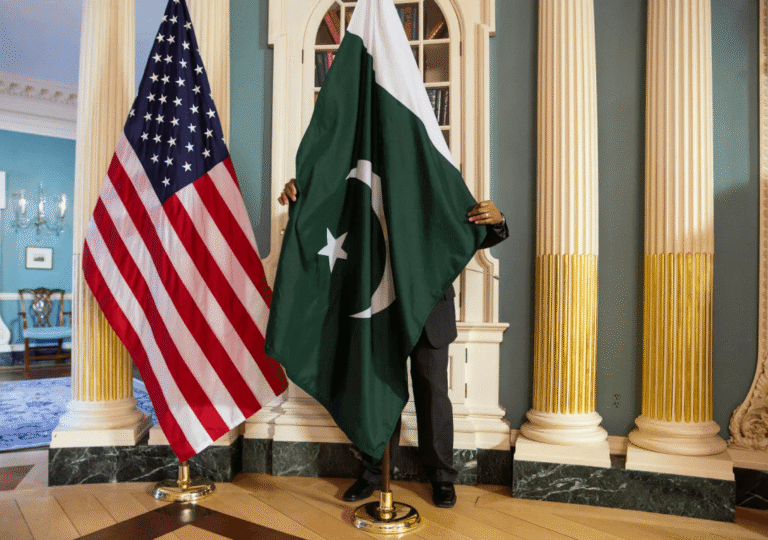In the Middle East, a minuscule piece of land has become the focal point of global attention—the Gaza Strip, a Palestinian territory situated along the eastern coast of the Mediterranean Sea. Bordered by Egypt to the southwest and Israel to the east and north, this region finds itself trapped in a quagmire of discussions, extending from the realms of social media to the chambers of the United Nations, with no resolution in sight.
Since last October, the Gaza Strip has been a war-torn landscape, grappling with a severe humanitarian crisis. The conflict pits Israel against this tiny enclave, home to Hamas—a group viewed as terrorists, while others see them as champions of Islamic rights. Against a backdrop of streets stained with human blood and strewn with the remnants of demolished homes, hospitals, schools, and buildings, the enclave is on the verge of collapse.
Israel’s retaliation for the loss of a thousand lives shows no signs of abating, with the toll on Gaza now reaching a staggering 25,000 people. The Israeli call for the uprooting of Hamas translates into a destabilization of Gaza itself, as diplomatic efforts, including UN resolutions and international pressure, falter in bringing peace to the region.
As Israel’s fury persists, the question looms: will an independent Gaza emerge under the banner of a Palestinian state, or is it destined to be annexed by Israel?
How the Gaza Issue Evolved?

One of the world’s highest population densities, Gaza stands as a complex tapestry of religious and political dynamics. Sunni Muslims form the majority, with a Palestinian Christian minority woven into the fabric. Over the years, Gaza has symbolized Palestinian nationalism, resistance, along with global Islamic solidarity, situated as a 41km (25-mile) long and 10km-wide territory between Israel, Egypt, and the Mediterranean Sea.
Having been under Egyptian control, Gaza saw a shift during the 1967 Six-Day War when Israel captured it. In 2005, Israel unilaterally withdrew its troops and settlers, implementing a temporary blockade that became indefinite after Hamas took control in 2007, backed by Egypt. Despite being recognized as part of Palestine by many nations, Gaza lacks UN member status.
The West Bank and Gaza, considered a single Israeli-occupied territory by the UN, are governed separately. The West Bank, under limited self-rule by the Palestinian Authority (PA), acknowledges Israel’s existence, while Gaza, ruled by Hamas, rejects it. The UN and human rights organizations assert that Gaza remains under Israeli military occupation, facing a blockade that restricts movement and goods, earning it the moniker “open-air prison.”
Hamas, having seized control in 2007, seeks an Islamic state in lieu of Israel, rejecting its right to exist. The recent conflict stems from perceived Israeli transgressions, including security raids on the al-Aqsa Mosque and West Bank settlement activity. The pursuit of a two-state solution faces staunch opposition, as both sides grapple with conflicting visions of coexistence.
What’s happening in Gaza Now?

In the ongoing chapter of this enduring conflict, Israel and the Palestinian group Hamas find themselves locked in a deadly confrontation since early October. The hostilities were sparked when Hamas gunmen launched an unprecedented attack from Gaza into Israel, resulting in the deadliest incident in Israel’s history. Subsequently, Israel initiated a military campaign in the Palestinian territory, claiming thousands of lives.
On the fateful morning of October 7th, waves of Hamas gunmen breached Gaza’s border, causing the death of approximately 1,200 people in Israel. The casualties included children, the elderly, and 364 young individuals attending a music festival. Hamas also took more than 250 people as hostages back to Gaza. The group’s demands include the release of thousands of Palestinian prisoners in Israel and an end to the blockade on the Gaza Strip by Israel and Egypt—measures both countries justify for security reasons.
Having engaged in several wars with Israel, firing thousands of rockets and orchestrating lethal attacks, Hamas is branded a terrorist group by Israel, the US, the EU, the UK, and others. Israel, in response, has conducted numerous airstrikes and sent troops into Gaza in 2008 and 2014. Iran supports Hamas with funding, weapons, and training, further complicating the dynamics of this enduring conflict.
In swift retaliation to the Hamas attack, Israel initiated an extensive air campaign targeting Gaza. Prime Minister Benjamin Netanyahu declared the objectives as the annihilation of Hamas and the recovery of hostages. Subsequently, a ground invasion was launched three weeks later, accompanied by naval bombardment. The initial focus was on northern Gaza, particularly Gaza City and its tunnels, alleged to be central to Hamas military operations. A directive from Israel ordered the evacuation of all 1.1 million people in the north for their safety.
After a brief truce in late November, the Israel Defense Forces (IDF) extended ground operations to southern Gaza, reaching Khan Younis, the second-largest city, and refugee camps in central Gaza. Displaced individuals from the north were compelled to move further south, with plans to invade the southern town of Rafah, where approximately 1.5 million sought refuge.
The toll on Palestinians has been devastating, with more than 28,000 killed and tens of thousands injured since the war’s onset, according to Gaza’s Hamas-run health ministry. The majority of casualties are reported to be women and children. The IDF claims to have eliminated around 9,000 Hamas fighters, in addition to over 1,000 attackers inside Israel, without specifying the basis for these figures. Israel acknowledges over 230 of its soldiers killed in Gaza, while homes and structures in the region have suffered extensive damage and destruction.
Israel employed a strategy of cutting off essential supplies, including food, water, and fuel, as a tactic to exert pressure on Hamas for the release of hostages. This approach resulted in severe shortages within Gaza’s population. Although Israel has permitted the entry of humanitarian aid, medicines, and limited fuel quantities since then, the delivered aid falls significantly below pre-war levels.
The UN has accused Israel of hindering aid delivery, while Israel, in turn, has attributed problems to the UN. Describing the situation in Gaza as “horrific,” the UN has highlighted overflowing shelters, depleting food and water supplies, and an escalating risk of famine. Gaza’s health system is on the brink of collapse, with only 16 out of 36 hospitals partially operational. These facilities grapple with an overwhelming number of injured individuals and face shortages of staff, medical supplies, food, fuel, and water.
Future Plans on Gaza
The vision for Gaza’s future appears precarious, with the Israeli Defense Minister, Yoav Gallant, proposing a post-war scenario where Hamas loses control, and Israel maintains overall security dominance. Under this plan, a multinational force would oversee the reconstruction efforts after the extensive destruction caused by Israeli airstrikes, and Egypt might have an unspecified role.
However, the proposal maintains that Palestinians would be responsible for governing the territory, with the condition of non-hostility toward Israel. Despite some far-right members suggesting encouraging Palestinian citizens to leave Gaza for exile and re-establishing Jewish settlements—an idea criticized as “extremist” and “unworkable”—Gallant’s proposals are seen as relatively more practical.
While Prime Minister Netanyahu has not publicly detailed his governance vision for Gaza, the overarching goal is to crush Hamas completely. Gallant’s plan outlines a more targeted approach in the north of Gaza, involving raids, tunnel demolitions, and air and ground strikes. The aggressive Israeli strategy signals an assertive stance against Hamas ruling Palestine, making the prospect of a free Palestine seem unlikely. In essence, Israel will decide the future of Gaza as they wish.








